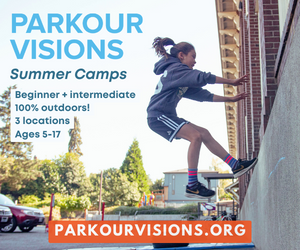Welcome back for the second half of our two-part conversation on raising food-neutral and body-positive kids. If you haven’t had a chance to read Part 1, check it out here and learn about the ways we can shift our habits around food and our relationship to it.
In this segment, we will explore ways we can shift our perspective and reframe how we think and talk about our bodies.
Talk about appearance in neutral ways and eliminate conversations about weight and size from the topic list.
We have to be careful with both ends of the spectrum, both praise and judgment. Commenting on someone’s weight or physical attributes can create a hyperfixation on their appearance. This may lead to them taking measures — sometimes extreme — to change or maintain it. Can you find neutral ways to celebrate your children’s body for what it does for them or hard they work in using it?
Be especially mindful of well-intentioned, albeit ignorant, comments from people outside of the home who may remark on your child openly with comments about how “skinny” or “chunky” they are, notice what they eat, etc. This even shows up in the way we comment on how much or little hair a toddler has — with the subtle undertone being there is a right or expected amount of hair to have.
Be your child’s advocate (and an advocate for the global change we want to see where we stop making appearance such a priority) and set the precedent you don’t talk about their physical appearance or statistics with anyone but their medical provider.
This doesn’t mean we can’t empower them to think positively about themselves.
We want our children to celebrate their body for what it does and what it looks like and want to empower and support them in doing so. The subtle difference is celebrating how they feel rather than imposing how we feel. For example, instead of saying, “I am so proud of you,” which projects our expectations and standards onto them, we can say, “I bet you feel really proud” or “It sounds like you are really proud of yourself for doing X.”
If they get a haircut or try out a new style, ask them how they feel about it. Celebrate how it impacts them rather than focusing on your visual reaction.
Hold each other accountable.
We have a rule in our home that we do not make self-deprecating comments under any circumstance. This is true for anyone who enters our home space as well. And we have committed to holding each other accountable in this. If anyone says anything negative about themselves — their appearance, actions, feelings, etc — we call out the negative comment and invite them to say something positive about themselves. We always offer support and share kind things with them if they have a hard time and try to make it an experience of celebration rather than shame.
However you and your family choose to handle it, commit to banning self-deprecating and judgmental talk. This doesn’t mean we don’t get to feel disappointed or upset about something, and name that. It means that we do not label ourselves negatively in response to how we feel, what we did or what happened.
Your job is not to prevent bad things from happening but give them skills and support for when it does.

I wish we could prevent our kids from experiencing the same pain and distress we did but even if the specifics are different, your kids will feel distress around their body. They will feel judged. They will question their appearance. They may struggle with food. Unfortunately, this is normal. We cannot prevent it but we can normalize it and give them tools to respond when they feel this way. A major way you can do this is by talking about your own experiences and asking about theirs.
Social media is a major source of information for kids, and they are getting messages constantly about what they should look like, act like, be, etc. Don’t shame them for this or take the tools away. Empower them to think about the effect this has on them and support them in finding ways to engage differently with these platforms. Make it normal to have a bad body image day and help them separate feelings from actions. Can you validate how they feel and help them see that this does not mean they have to feel shame, diet or change who they are to be loved and worthy?
Ask the hard questions. Talk about the scary stuff.

Get comfortable talking about the “-isms” that perpetuate beliefs that some people and bodies are better than others. We need to talk about diet and fitness culture. We need to be open to the idea that we may be getting it wrong because we are constantly learning what is best for our kids.
We have to be comfortable talking about fatphobia and the internalized biases we all face as it relates to body size.
We have to be okay not fixing everything for our kids or unintentionally making their pain our story. Remember, our job is to equip them with confidence and skills. And a big part of this is knowing what is and is out of your control.
Forgive Yourself.
Sometimes, when we think about these ideas, we can get lost in a sea of shame, calling out all of the ways we may have unintentionally perpetuated negative body image and diet culture. Let that go. It does not serve you or your kids to beat yourself up about this. As my 2-year old says every time we reach a tough spot or move through a difficult emotion, we are all “Just Learning.” You are not supposed to get it right every time. You are just supposed to be open to learning as you go. You are doing the best you can, every day, with the information and resources at your disposal. Celebrate that. And if you learned something new in these articles, celebrate the growth that can happen from that rather than judging yourself for not knowing or doing it before.


















